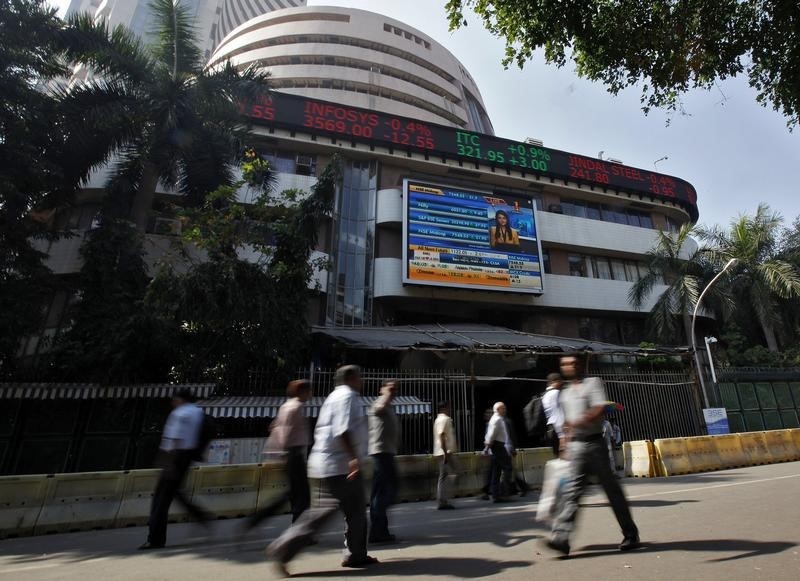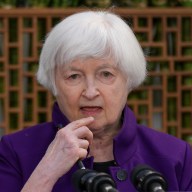By Kailash Bathija
BENGALURU (Reuters) – India’s benchmark BSE Sensex index of leading shares will rise a further 5 percent by the end of this year, according to analysts polled by Reuters, driven by a stable growth outlook and on expectations the government will pass more economic reforms. The Sensex <.BSESN>, which closed Monday at 27,626, has weathered recent financial market turmoil relatively better than its peers as robust economic growth of 7.9 percent in the January-March quarter was the fastest among major economies. Indian shares fell a little over 4 percent on the day after Britain’s shock June 23 vote to leave the European Union, but those losses were recouped in the next four trading sessions.
The BSE Sensex is expected to rise to 29,000 by end-December and reach a record high of 30,700 by end-June next year, supported by key economic reforms.
These reforms include a goods and services tax and a bill to support government land acquisition for infrastructure development.
Similar gains are expected by the broader NSE index <.NSEI>, which will reach 9,000 by end-December and then rise to 9,200 by mid-2017, the poll showed.
“We see lot of money coming into India because of growth. Even if we factor in some amount of global economy related impact, it is not going to be worse than what we have now,” said Deven Choksey, chief executive officer at KR Choksey. While India looks a relatively safe bet in Asia, equity strategists said a further economic slowdown in China or New Delhi’s failure to pass reforms like the goods and services tax (GST) could hold back a rally. Expectations for more policy easing from the Reserve Bank of India could also boost Indian stocks, analysts said. The RBI cut interest rates five times in the 18 months to April as inflation eased to within the central bank’s target. The most optimistic forecast in the survey was for the Sensex to surge to 35,000 by year-end, a gain of almost 27 percent from now, while the most negative view was for a 10 percent drop.
But a lot will depend on how soon Prime Minister Narendra Modi – who is already nearly half-way through his five-year term – can enact the GST bill, a key reform that seeks to abolish several layers of central and state levies with a single tax. If the GST bill does receive Parliamentary approval in the upcoming session which starts July 18, the general view is it will add between one to two percentage points to India’s economic growth. Analysts said that would attract investors who have already pumped about $2.5 billion into Indian equity markets since the financial year started in April, a hefty inflow considering foreign players were net sellers of Indian stocks last year. “GST is certainly going to be a game-changer,” added Choksey.
(Polling by Khushboo Mittal and Lisa Mattackal; Editing by Sam Holmes)
Poll: India stocks to march higher, scale record peak in 2017

By Kailash Bathija












